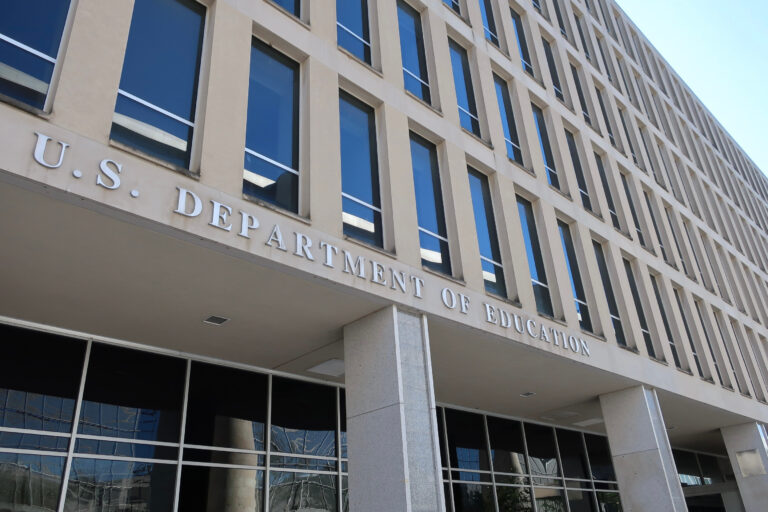On Thursday July 16, the Senate passed the Every Child Achieves Act by an 81-17 vote’a massive gust of wind in the sails of the effort to reauthorize ESEA. We polled Education Insiders to understand how this development affects the likelihood that a final renewal bill will be signed in to law. While there is still much work to be done, Insiders are significantly more optimistic about the prospects for ESEA reauthorization in the near future. Read more
On Thursday July 16, the Senate passed the Every Child Achieves Act by an 81-17 vote—a massive gust of wind in the sails of the effort to reauthorize ESEA. We polled Education Insiders to understand how this development affects the likelihood that a final renewal bill will be signed in to law. While there is still much work to be done, Insiders are significantly more optimistic about the prospects for ESEA reauthorization in the near future.
According to our latest poll, 70% of Insiders now believe a bill to reauthorize the nation’s K-12 education law will be signed before the end of Obama’s presidency. 43% believe the bill is likely to pass by December of this year, while the remaining 27% think next year is a more realistic timeline. However, some commenters continue to caution that a passage timeline extending into next year will run into the election season ramp-up and cause the bill to get lost in the wash.
This is a significant increase from a month ago, when only 43% of respondents reported believing ESEA would be renewed by December 2016.
Of the 30% who don’t see a renewal happening by the end of 2016, many point to the challenges and disagreements that will undoubtedly arise when the bill goes to conference. The House, they argue, is unlikely to accept the Senate’s bill—and after the revision process, it’s possible they will be unable to reach an agreement on a bill that will pass both legislative bodies.
It’s interesting to note that none of those surveyed reported believing that ESEA will never be reauthorized. In previous surveys, a small number of respondents believed the federal education law could be rolled up into future education legislation.
Below are a few interesting quotes from the survey:
The Optimists
- Huge change [in my view]’I had thought never. But 80 votes in the Senate sends a big signal.
- 81-17 is a pretty impressive start to a pre-conference process that will get started in August. [Senator Alexander] and [Senator Murray] showed how to get a result, Kline and Boehner want a result, Obama wants a result. Scott probably doesn’t, but he’ll be engaged in conference and hopefully see reason.
- Yesterday’s vote—where Democrats bucked the NEA and moved a bill forward that angered the Civil Rights community—provides such a large margin that I could see a bill not all that different from the Senate version [making it] to the President’s desk. And I don’t see how the office that so deliberately undermined reauthorization [with waivers] would want to further damage a fragile education legacy by vetoing a bill with solid substance.
- I picked December 2015. There’s some momentum now. If it doesn’t happen this year, momentum will die and everyone knows it. And people want to get it done.
- The stars are aligning.
The Pessimists
- One word: conference.
- Even with the House and Senate passing their own bills, I’m not convinced there’s a conference bill that can get through both chambers and be signed by the President, unless Boehner is willing to pass something without a majority of his caucus.
- They’re getting closer. But the Congress will be slight on both money and accountability. And this President won’t play ball in the end.
- How can the President sign a law that will be a hybrid of the House and the Senate (where Democrats got rolled)? Is he just to ignore half of the Democratic base and sign it?”
Our survey also asked respondents about a number of proposals offered during the Senate’s deliberations. Some were included in the final Senate bill, while others were rejected. We wanted to understand the likelihood that each proposal would be included in a final bill coming out of conference. Here are the results:
- Insiders are split on whether or not changes to the Title I funding formula that would direct more money to rural districts will be included.
- 62% of Insiders believe a requirement to notify parents of their rights regarding testing opt-out will make it in to the conference bill. However, the same percentage of Insiders believe it is unlikely that a provision to allow opt-out without consequences for accountability rules will come out of conference.
- Just over half of respondents think the conference bill will require state intervention for low-performing schools.
- Nearly half of Insiders (48%) believe it is unlikely we’ll see provisions allowing greater school choice; 31% are unsure.
- Insiders are split on whether we’ll see a state and federal partnership to expand access to Pre-K.
We will be releasing the full report on the survey—including additional numbers on the Common Core testing consortia and the federal college ratings system—tomorrow. In the meantime, follow us on Twitter at @whitebdadvisor for more news, updates, and infographics on the latest education policy news.



